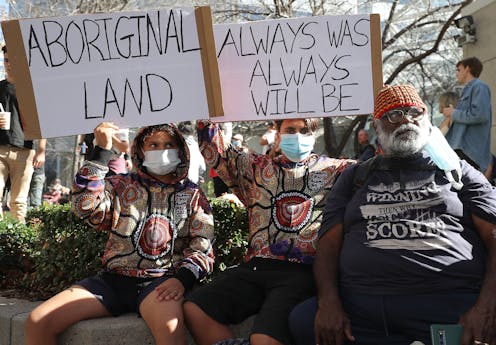Juukan Gorge inquiry puts Rio Tinto on notice, but without drastic reforms, it could happen again
- Written by The Conversation
 RICHARD WAINWRIGHT/AAP
RICHARD WAINWRIGHT/AAPOn the eve of Reconciliation Week this year, news broke that Rio Tinto had destroyed ancient rock shelters at Juukan Gorge in Western Australia to expand one of its 16 iron ore mines in the Pilbara.
The public was appalled to learn that a mining company could legally destroy such sacred Aboriginal heritage. Rio Tinto mishandled...
















